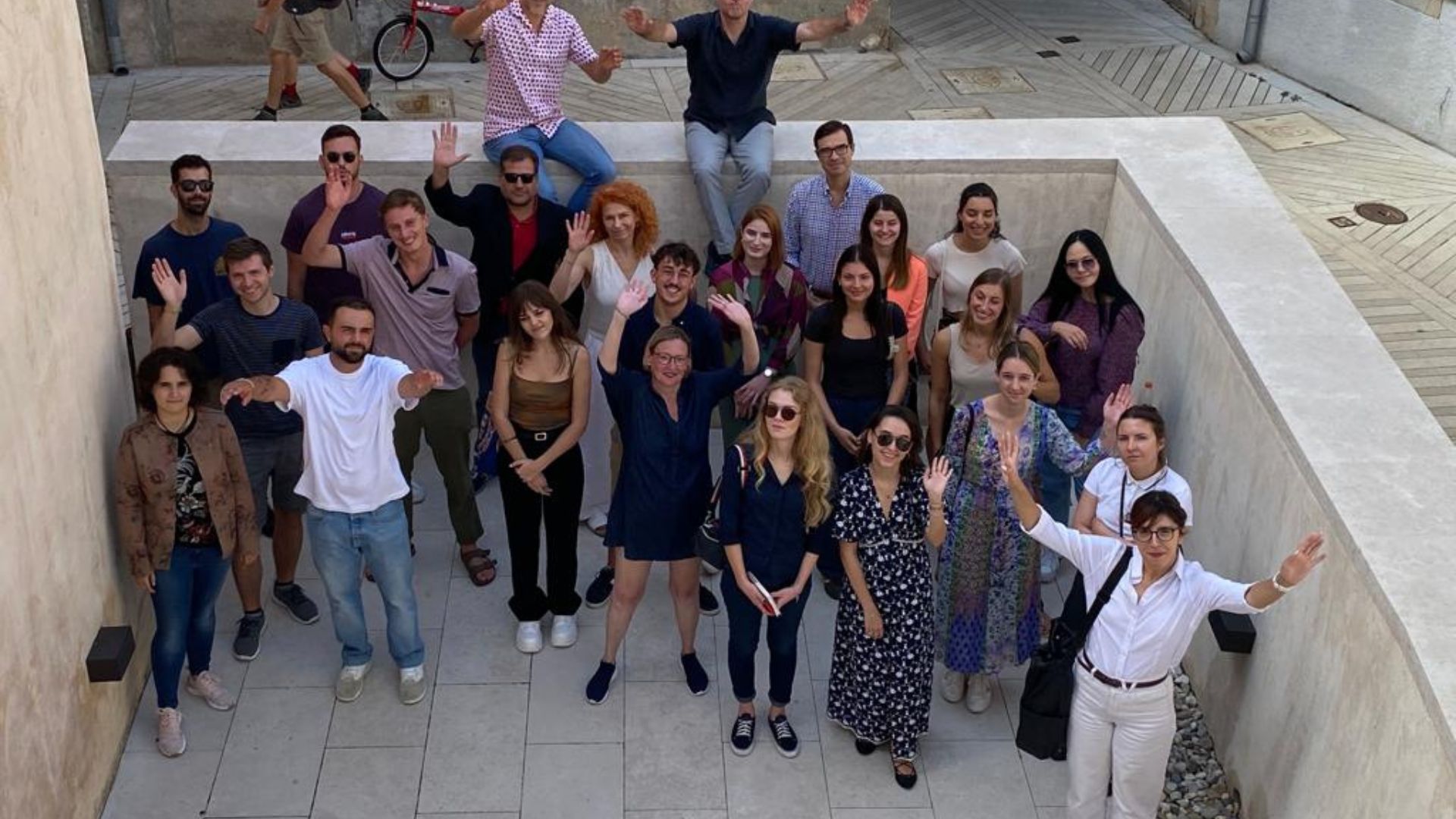Today, Europe’s democratic future is being defended in the trenches in Ukraine. Amidst the war, granting candidate status to Ukraine and Moldova was one of the most significant decisions in the European Union’s decades-long relationship with these states. It is now imperative that this does not remain an empty gesture but an effective commitment to starting accession negotiations and shaping the continent’s future together.
The question of enlargement is once again high on the agenda. Today, Ukraine and Moldova are closer to the EU than ever before, and the Western Balkans should not be left in the waiting room any longer. The region has been waiting for 20 years now. The back and forth of the complex relationship requires decisive political action.
Over the past two decades, the EU has faced challenges in realizing its aspiration to be a normative power not just on a global scale but also within its immediate surroundings. Liberal democratic values are also threatened within the EU. The malicious influence of authoritarian and revisionist China and Russia persists. These influences contribute to further polarization in countries that already have strained relations with the EU. In Serbia, for example, only about 30% of citizens are in favor of the country’s accession.
The notion that the Western Balkans are perceived as a “European jungle” is unhelpful for serious decision-making. The EU should uphold a new enlargement momentum and revive a vision of Europe as whole and free. The EU’s determination to invest in the vision of Europe, based on liberal democratic values, will encourage reform forces in Western Balkan countries to confront autocrats in their countries. We are positive that the EU of 30+ is able to function, but we also understand that only a reformed EU is capable of such a task.
Youth participation as the antidote to carpe diem politics
Russia’s aggression in Ukraine has re-emphasized that Europe has to build its defense capabilities and invest in strategic autonomy. This is also a way to strengthen trans-Atlantic partnerships. Internal disagreements among member states on how we get there only highlight rising concerns about the modalities of a common future and a mutual lack of trust.
This issue also reflects citizens’ passivity, complacency, and, in some countries, a general decline in democratic participation. These elements come together to paint a bleak picture of intensifying social inequalities and grievances, leading to the absorption of extremist ideas and the rise of illiberal sentiment.
Often, it is the youth who feel unseen, unheard, and unrepresented in politics. Damaging and irresponsible use of rapidly developing informational technology also holds the potential to exacerbate the process and further disconnect citizens from the political process.
We argue that the origins of disappointment and distrust lie in irresponsible, carpe diem politics. When politicians seize power and make decisions prioritizing their immediate interests with no regard for the long-term consequences of their actions, the younger generations stand to lose the most. Therefore, their presence must be amplified in all aspects of public life. The change led by young people is possible, as we saw recently in the last elections in Poland, where the young people made a difference. Let’s take it from there, from the streets, from new energies, visions, and dreams.
A vision of a stronger European identity – a stronger Europe – should entail the strong voices of youth. Shaping a bolder stance for Europe in global affairs begins with giving human agency center stage. We believe that people are the drivers of positive change for a democratic, resilient Europe.
Gender-based violence: The lingering tumor in Europe
However, the illiberal high tide and rise of the far-right in Europe are undeniable realities. This trend is notably exemplified by issues related to gender equality and, more importantly, gender-based violence.
In Poland, the 2020 anti-abortion law has tragically led to at least six deaths among women denied essential medical abortions. Recent events in Spain, after the national female soccer team won the world championships, demonstrate that gender equality is not being taken seriously enough.
This is also a pressing issue in the Western Balkans. In Bosnia and Herzegovina, a man live-streamed the murder of his ex-wife, with more than 12,000 people watching. It has sparked nation-wide protests to combat this issue. Their message is: Ni jedna više (not one more). Serbia recorded 23 femicides in 2022 alone. And its neighbor Kosovo was shocked by a brutal case of gang rape of an 11-year-old child in June last year.
This is an unacceptable pattern of violence. It underlines the urgency to act on these issues, and the EU needs to approach these topics with the utmost seriousness; otherwise, there is no point. What we want is a Europe where everyone is equal. A community that puts EU enlargement, youth participation, and gender equality at the center of the discussion about the future of our common European home.
This op-ed was written during the “Next Generation Europe – Cres Summer School” by 19 young people from 14 countries on the Croatian island of Cres. It is a follow-up project of the WB2EU Network’s Next Generation Summer School in 2022 that took place in the framework of an Erasmus+ Jean Monnet network project on the future of the Western Balkans and EU enlargement.The Next
Generation Europe – Cres Summer School 2023; Photo: WB2EU






